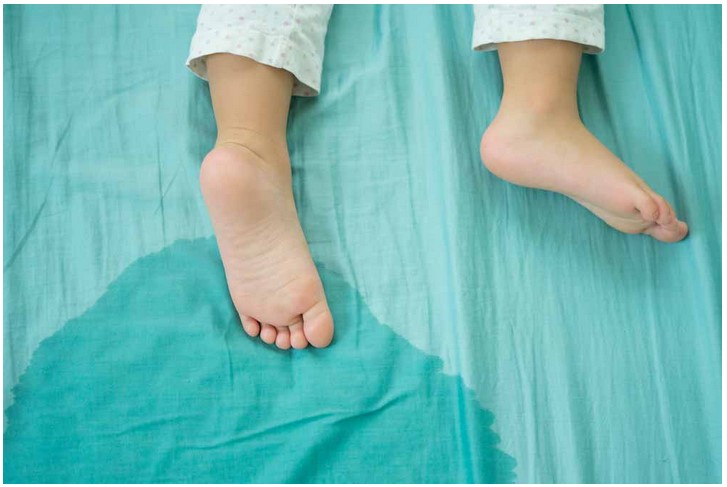

Dream-induced bedwetting in adults is a condition that can be both embarrassing and disruptive to daily life. It is characterized by involuntary urination during sleep, usually due to a dream or nightmare. While this condition is more common in children, it can also occur in adults. The causes of dream-induced bedwetting in adults can vary, but may include psychological issues, medical conditions, and lifestyle factors. Fortunately, there are a variety of coping strategies that can help to reduce the frequency and severity of this condition. This article will discuss the causes of dream-induced bedwetting in adults, as well as provide tips for managing the condition.
Exploring the Causes of Dream-Induced Bedwetting in Adults: What to Look Out For
Bedwetting, or nocturnal enuresis, is a common problem among adults, and can be caused by a variety of factors. Dream-induced bedwetting is a particularly troubling form of the condition, as it can be difficult to identify and treat. In this article, we will explore the causes of dream-induced bedwetting in adults, and what to look out for.
The most common cause of dream-induced bedwetting is a disruption in the body’s natural sleep cycle. During sleep, the body produces hormones that help regulate the bladder and prevent it from overfilling. If these hormones are disrupted, the bladder can become overactive and cause the individual to wet the bed. This disruption can be caused by a variety of factors, including stress, anxiety, medications, and sleep disorders.
Another potential cause of dream-induced bedwetting is a psychological issue. If an individual is dealing with unresolved trauma or emotional distress, they may be more likely to experience bedwetting. This is because the body is unable to process the emotions associated with the trauma, and the individual may be unable to control their bladder during sleep.
Finally, certain medical conditions can also cause dream-induced bedwetting. These include diabetes, urinary tract infections, and kidney problems. If an individual is experiencing any of these conditions, they should seek medical attention to determine if they are contributing to their bedwetting.
When it comes to identifying dream-induced bedwetting, there are a few key signs to look out for. First, if the individual is waking up in the middle of the night to urinate, this could be a sign that their bladder is overactive. Additionally, if the individual is experiencing frequent nightmares or night terrors, this could be a sign that they are dealing with unresolved emotional issues. Finally, if the individual is experiencing any of the medical conditions mentioned above, this could be a contributing factor to their bedwetting.
In conclusion, dream-induced bedwetting in adults can be caused by a variety of factors, including disruptions in the body’s natural sleep cycle, psychological issues, and medical conditions. If you are experiencing any of the signs mentioned above, it is important to seek medical attention to determine the cause of your bedwetting and find an appropriate treatment plan.
Coping Strategies for Dream-Induced Bedwetting in Adults: How the Dr. Gundry Diet Can Help
Bedwetting, or nocturnal enuresis, is a common problem among adults, particularly those who suffer from frequent nightmares or other forms of sleep disturbances. While it can be embarrassing and disruptive to daily life, there are ways to manage and even reduce the frequency of dream-induced bedwetting. One such approach is the dr. gundry diet, which is designed to improve overall health and wellbeing.
The dr. gundry diet is based on the principles of a plant-based diet, with an emphasis on whole, unprocessed foods. This includes plenty of fruits and vegetables, as well as nuts, seeds, and legumes. It also recommends avoiding processed foods, sugar, and refined carbohydrates. Additionally, the diet encourages the consumption of probiotic-rich foods, such as yogurt and kefir, as well as fermented foods like sauerkraut and kimchi.
The dr. gundry diet is designed to improve overall health and wellbeing, and this includes improving sleep quality. By eating a balanced diet that is rich in nutrients, the body is better able to regulate hormones and neurotransmitters, which can help to reduce stress and anxiety. Additionally, the diet encourages the consumption of probiotics, which can help to improve digestion and reduce inflammation. This can help to reduce the frequency of nightmares, which can in turn reduce the frequency of dream-induced bedwetting.
The dr. gundry diet is not a quick fix for dream-induced bedwetting, but it can be an effective way to reduce the frequency of this problem. By eating a balanced diet that is rich in nutrients and probiotics, the body is better able to regulate hormones and neurotransmitters, which can help to reduce stress and anxiety. Additionally, the diet encourages the consumption of probiotic-rich foods, which can help to improve digestion and reduce inflammation. With a combination of dietary changes and other lifestyle modifications, dream-induced bedwetting can be managed and even reduced.
Conclusion
In conclusion, dream-induced bedwetting in adults is a complex issue that can be caused by a variety of factors. While there is no one-size-fits-all solution, there are a number of coping strategies that can be employed to help reduce the frequency and severity of episodes. These strategies include lifestyle changes, such as reducing stress and avoiding caffeine, as well as medical interventions, such as medications and bladder retraining. With the right combination of strategies, adults can successfully manage their dream-induced bedwetting and lead a more comfortable and fulfilling life.